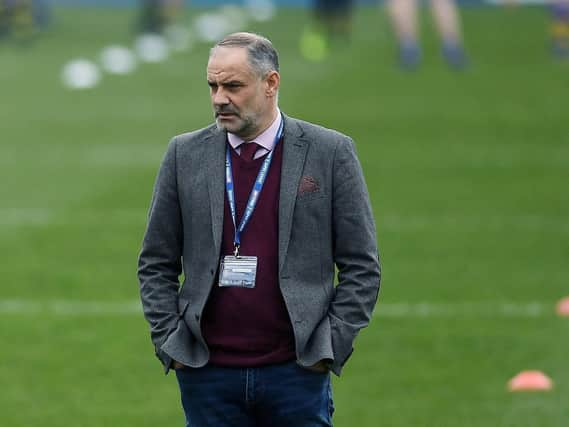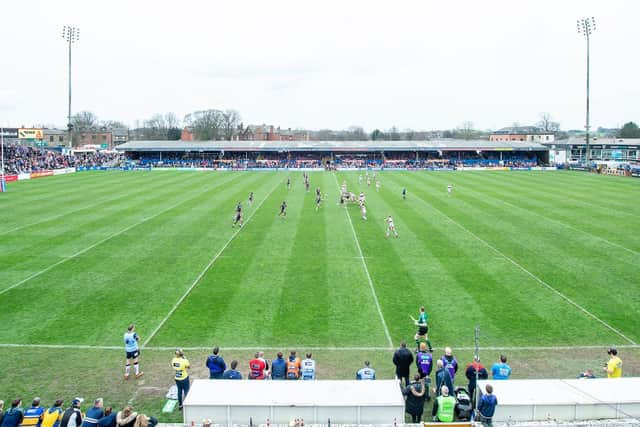Wakefield Trinity’s Michael Carter wants ban for Super League leak culprit


The BBC ran a story on Thursday explaining three different scenarios on how the competition could start up again after the coronavirus pandemic.
It detailed how Super League hopes to start once more in mid-August, have some crowds watching games by October 1 and discussed a variety of potential new Grand Final dates – November 28, December 12 and January 16.
Advertisement
Hide AdAdvertisement
Hide AdBut the information in the document, seen by the BBC, was private and confidential and Carter is incredulous that someone involved at such a high level in the sport would release details when nothing has yet been decided.


The options will be put to the RFL board of directors next week but Carter told The Yorkshire Post: “I can’t believe internal discussion documents have been leaked.
“That is all they are (discussion documents).
“It is ridiculous that someone on the board of Super League goes straight out and leaks stuff like that.
“Whichever CEO is leaking them needs to be banned from the sport.”
Advertisement
Hide AdAdvertisement
Hide AdEach Super League club has a representative on the board with Robert Elstone as their chief executive.
A number of club CEOs have expressed their dismay to The Yorkshire Post that details have emerged at such a delicate time.
With no games played in Super League since March 15 and the sport battling with the financial effects of the virus, club owners and chief executives are all facing difficult decisions.
Players have taken pay-cuts across the competition and have been furloughed along with most staff at all clubs and – like in football and other sports – it is accepted they will have to play behind closed doors for some part of the season once it does restart.
Advertisement
Hide AdAdvertisement
Hide AdRugby league has secured a £16m Government loan to aid their recovery but there is huge uncertainty around how it will emerge from the crisis.
Carter, though, believes the subject matter of fixture formats should not even be high up the agenda.
“I’d much rather find out, if I’m honest, what’s the cost of testing?” he explained.
“And what’s the cost of safe protocols going to be as I still don’t know them, which I would have thought would have been fundamental to any restart.
Advertisement
Hide AdAdvertisement
Hide Ad“And, finally, I still don’t know the repayment terms and the interest rates on the government loan. It’s been three weeks since that was announced and we still don’t know that.”
“I think fixtures is all well and good for fans to have a look at and discuss and what have you.
“But in terms of CEOs there’s a lot more pressing questions that need answering right now.”
As with all sports, rugby league will keep a watchful eye on how the Premier League adapts when they plan to resume on June 12 while the NRL in Australia - where Covid-19 has been far less widespread - is due to start up again on Thursday.
Advertisement
Hide AdAdvertisement
Hide AdBut Carter does not want to discuss the make-up of the season here and how many games can be squeezed into any format until other details are known.
“What if, in July, testing is going to be 50 grand per club per week?” he asked.
“I know that’s extreme but we just don’t know.
“I don’t know why it’s got to go to the RFL Board next week.
“They’ve been involved with it (fixtures discussion) for the last couple of weeks so I’ve no idea why it has to go to that level.
“We have two months until the end of July.
“There’s loads of time to worry about who’s playing who.
Advertisement
Hide AdAdvertisement
Hide Ad“There’s far more pressing concerns at this moment in time rather than a fixture list.”
In the discussions on fixtures, it is suggested that the number of teams who can reach the play-offs is reduced from five to four and sides play a straight semi-final for a place at the Grand Final.